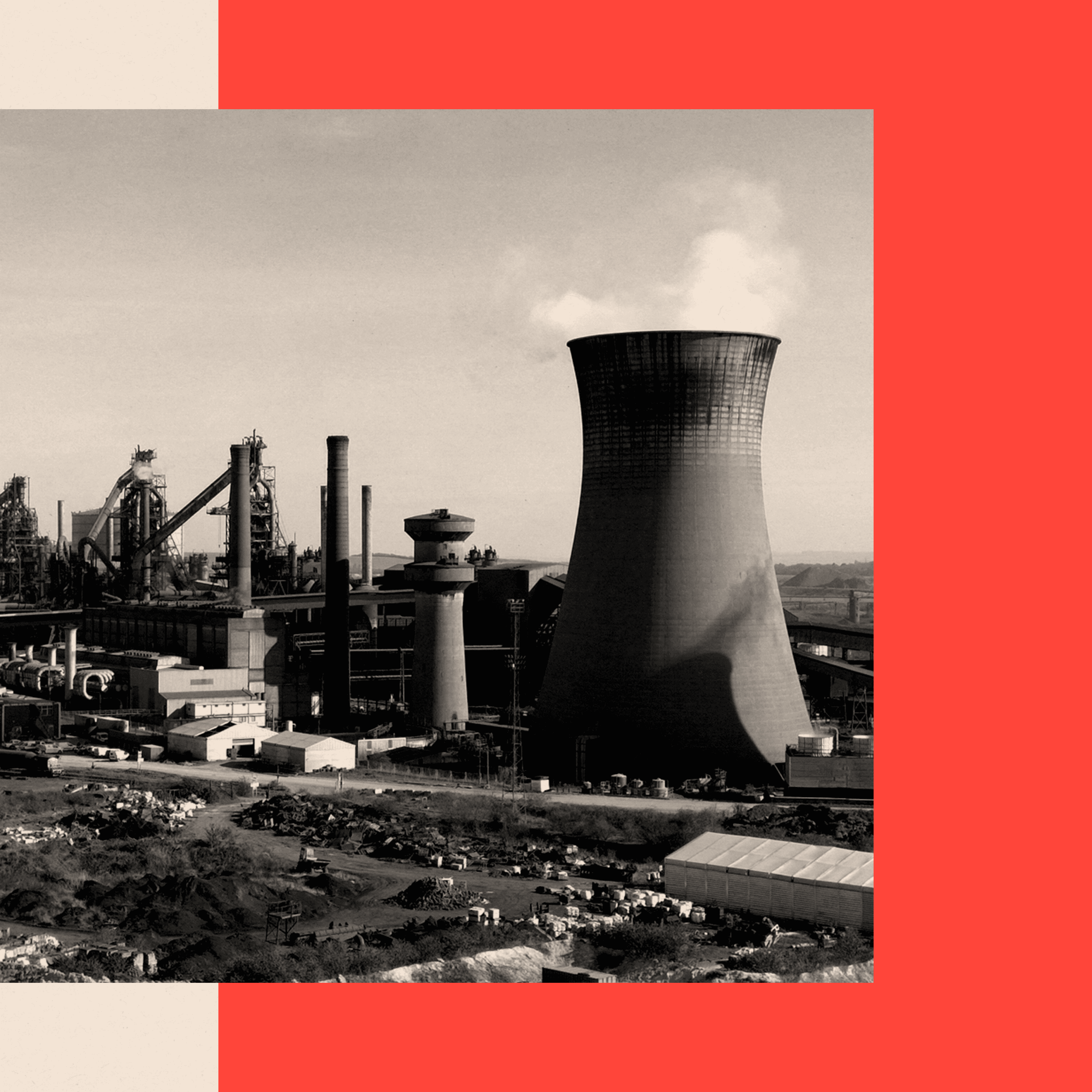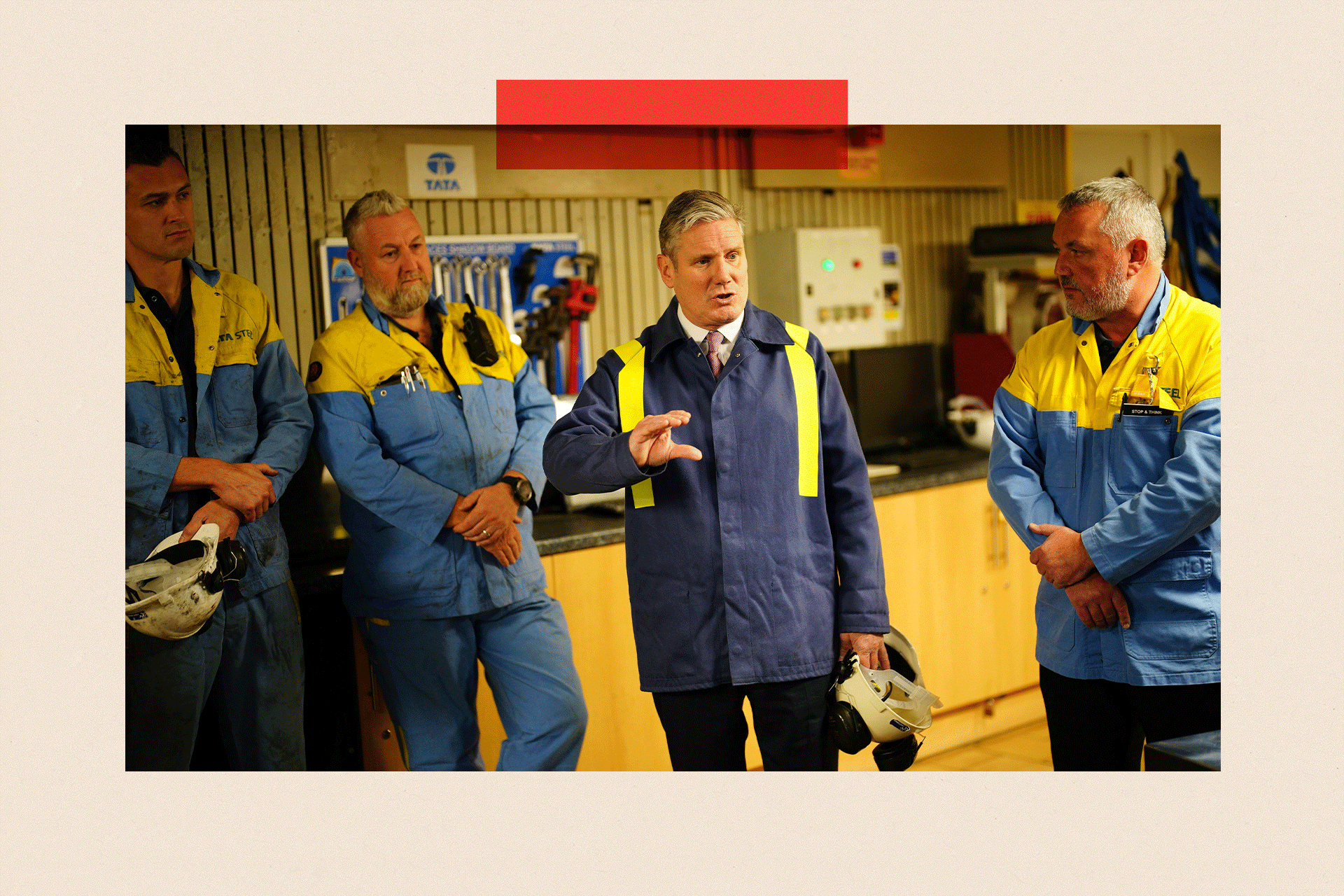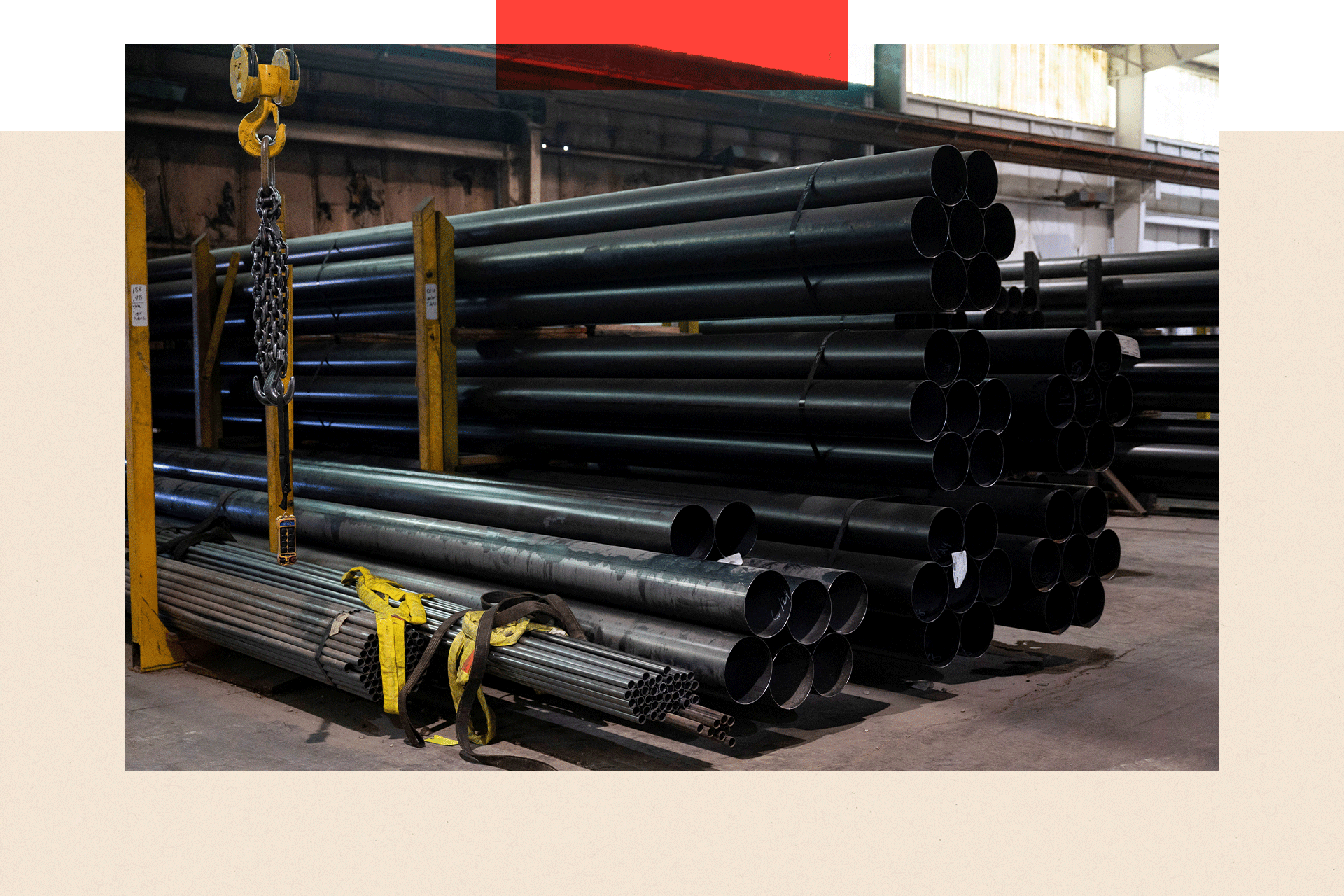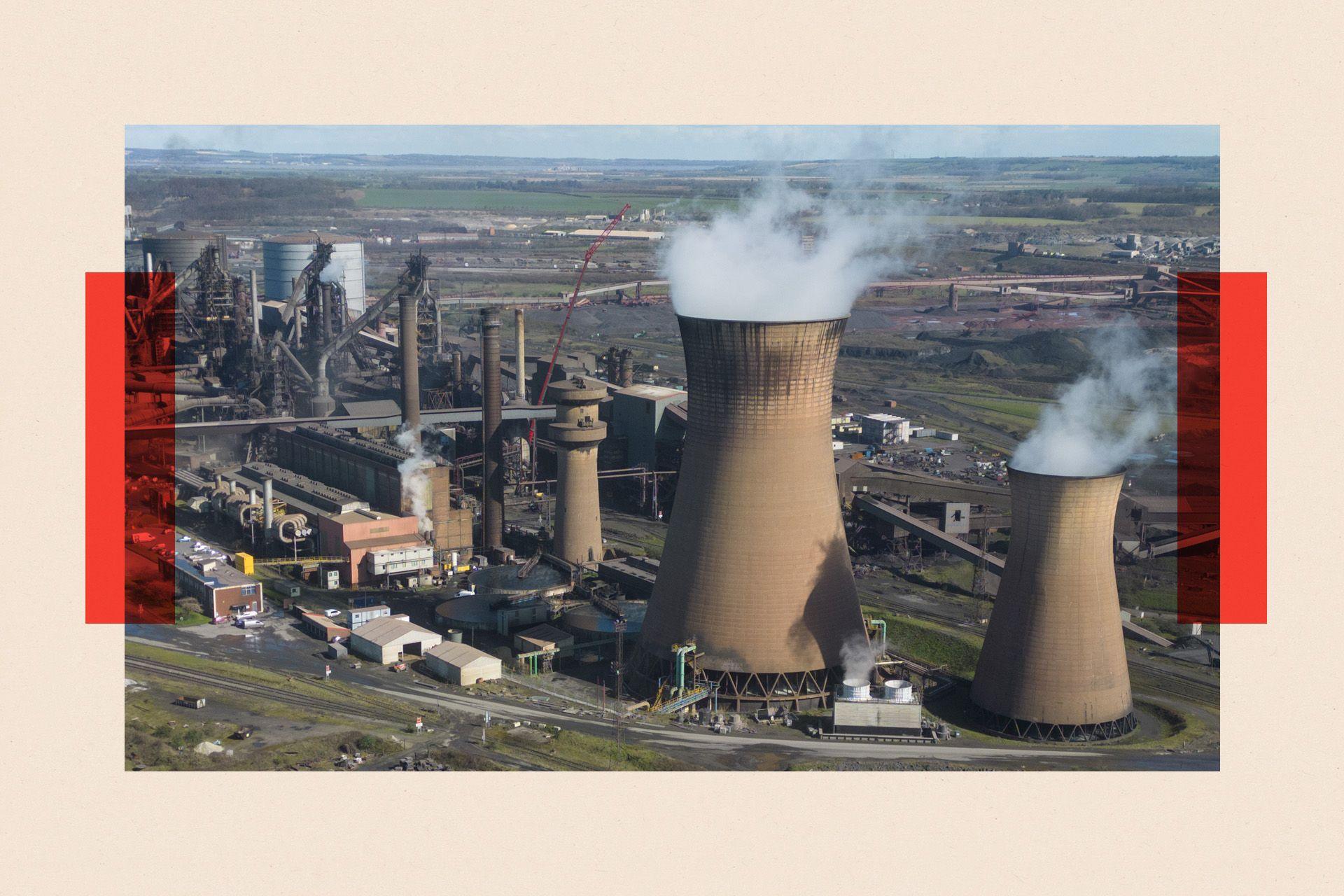
"Who was going to blink first?"
A source involved in the fraught negotiations since the election over the future of British Steel told me that as time passed, and literally, coal to keep the furnaces burning started to run out, that was the question - was the government going to offer even more to the Chinese owners of British Steel, Jingye, or act itself?
On Saturday, the government is changing the law to answer that question.
Unless something truly weird happens, Parliament will vote to give Jonathan Reynolds, the business secretary, the power to tell British Steel what to do – in practice, buying coal to keep the fires burning, to keep the once mighty steel industry alive.
Even on Thursday he was offering taxpayers' cash to buy the raw materials to keep the furnaces alive as a sweetener for Jingye.
At one point in the talks, sources suggest they were asking for a billion-pound taxpayer bailout to keep the plant alive. But I'm told that price wouldn't have been accompanied by any guarantee that jobs would be saved, or the plant protected for good.
Taking control on Saturday does not do that. The Chinese owners will remain the shareholders, for now. But Labour's decision literally and metaphorically keeps the flames alive – the government hopes. And it commits taxpayers to start coughing up to save the steel industry – for how long, is a more complicated question.

The government says it has not ruled out nationalising British Steel, which employs 2,700 people
So what then? Theoretically, Jingye could "get their act together and take the company back", one insider suggests.
Talking to interested parties on Friday night, that seemed vanishingly unlikely.
The UK government has spent the last couple of weeks trying to tempt them to stay on board with huge inducements. That failed, so the chances of getting back involved seem pretty slim.
There is the possibility that another company wants to swoop in and rescue the business.
Again, don't hold your breath – the company has been losing money hand over fist, the blast furnaces are nearing the end of their useful life, and the cost of energy it gulps is enormous.
So in the current state, taking on the business as an offer? It's not that pretty. Remember Jingye were the only bidder last time round – when a Conservative source says, "there were no other bidders – the alternative was closure or nationalisation, and the Conservatives were never going to nationalise". So will Labour?

British Steel says it may soon run out of raw materials needed to keep its two blast furnaces running
As of this weekend, that seems pretty likely. Remember the action in Parliament later does not mean nationalisation. But it's a necessary first step if that is what's going to happen.
You've probably heard ministers again and again say "all options are on the table" - that's their get out of jail card where they don't commit to anything in case their preferred option suddenly disappears. But as MPs gather to vote on the next steps, a journey towards nationalisation certainly feels like the direction.
Two different sources who have been part of the wider discussions tell me the prime minister has come to believe that taking British Steel back into public hands is what the government will have to do. There are practical and political reasons for why that might come to pass.
First, for the government to have a hope of achieving its aims - building infrastructure, spending more on defence at home, growing the economy and protecting jobs - it is logical to preserve a steel industry in this country.
That's not just because ministers are loathe to see good jobs disappear. But because in government, the capacity to make steel is an important part of what the UK needs to be able to do. If the plant closes, the UK would become the only G7 country without primary steel making capability.
That wasn't something the government was willing to tolerate. So if the private sector won't do it – enter the state. Although, it wouldn't be unfair to wonder why they have ended up making this decision at the last minute when the fuel for the furnaces is about to run out, given it was three weeks ago that the company sounded the alarm about possible closures.

Rachel Reeves has told workers the government will consider nationalisation if needed to protect jobs
Second, that requirement to act has become politically attractive because it fits into Sir Keir Starmer's more and more familiar script, that the new world order has changed – governments need to be more active and agile in protecting their own interests.
It follows, if, as Treasury Minister Darren Jones, told us last week, globalisation is over, then the UK has to be able to make the materials and products like steel that it really needs itself.
One source remarks: "Dragging the Tories to Parliament over the weekend to back the Labour government's plans to save British steel: I can finally see why people said government was worth it".
It is politics after all.
Conservative leader Kemi Badenoch has blamed the government's "incompetence" for the last-minute recall, while Liberal Democrat leader Sir Ed Davey said it was an opportunity to come up with "a serious plan" for domestic steel production.
Reform UK leader Nigel Farage said the government's plan was just a "short-term sticking plaster" and both he and the Green Party have called for public ownership as the only option.
It is worth remembering the problems in the steel industry didn't start with Donald Trump, or this government, or even Jingye. Steel was nationalised in 1967, then sold back into the private sector in 1988.
Frantic negotiations with government about jobs, bailouts, survival are familiar. But there is gathering momentum around nationalisation as the solution, in a way unthinkable not so long ago.
Hypothetical conversations started at the top of government a couple of months ago about the possibility, detailed work only in the last week or so. But there is a growing consensus - one source familiar with the situation even says, "nationalisation is inevitable and has been for some time".

Talks have been held this week to try to keep the company running, after its Chinese owner said the blast furnaces are no longer financially viable
But – "the hurdles are huge" – a source tells me. The most obvious obstacle? Cold hard cash, way beyond the initial price tag for raw materials to keep Scunthorpe going for a few more weeks.
In the long term, the blast furnaces are near the end of their life, the plant needs investment, massive investment, to make it safe and to have a proper future. One industry source told me modern electric furnaces could have a price tag as as much as £3bn each, and Scunthorpe might need two.
Energy costs for new or existing furnaces are enormous. In Number 10 and Number 11 there is an acknowledgement that the costs of energy for industry can be crippling. That could be another area where government is keen to act.
The government hasn't yet shared, or hasn't yet worked out, what the potential cost of taking on the plant in the long term might be. A Treasury source says it will have to be within the current plans for spending. And you don't need me to remind you again how tight Number 11 says money is, how tightly Chancellor Rachel Reeves wants to stick to her spending rules.
And yet – if a big ticket effective nationalisation is the political choice, and it runs to many billions? Let's see.
MPs voting later won't determine the entire future for British Steel. But it puts the government on a path to make real some of its rhetoric in recent weeks, as one figure put it – "neoliberalism is over. Ownership matters again - Labour needs to define Britain's place in this new, new world order".
But passing a law in a rush is one thing. Political excitement another. Sir Keir used to attract ire from the left of his own party for walking away from some of his previous beliefs in common ownership, nationalising vital industries. Embarking on an expensive and complicated adventure to preserve a struggling multi-billion pound industry was not meant to be part of the plan.

Sign up for the Off Air with Laura K newsletter to get Laura Kuenssberg's expert insight and insider stories every week, emailed directly to you.

BBC InDepth is the home on the website and app for the best analysis, with fresh perspectives that challenge assumptions and deep reporting on the biggest issues of the day. And we showcase thought-provoking content from across BBC Sounds and iPlayer too. You can send us your feedback on the InDepth section by clicking on the button below.
Get in touch
InDepth is the home for the best analysis from across BBC News. Tell us what you think.

